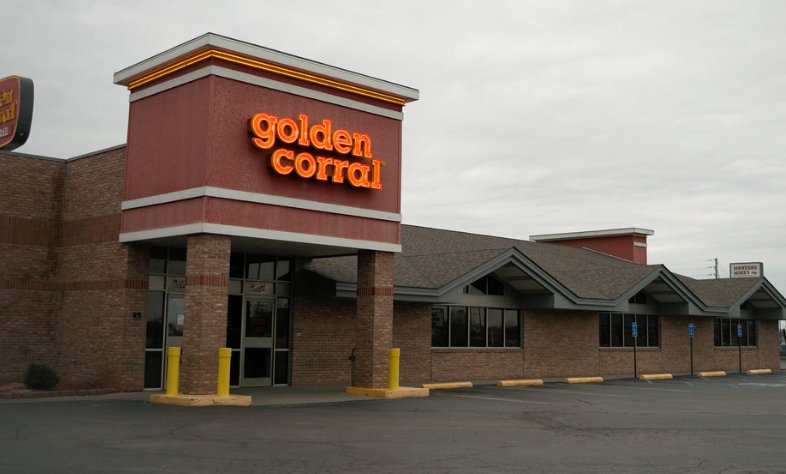The popular buffet chain Golden Corral has been struggling to survive the COVID-19 pandemic, which has forced many of its restaurants to close permanently or temporarily. The company has also faced bankruptcy filings from some of its largest franchisees, raising questions about its future prospects. In this article, we will explore the reasons behind Golden Corral’s closure, the impact on its employees and customers, and the possible ways forward for the brand.
The Pandemic Effect
The COVID-19 pandemic has been devastating for the restaurant industry, especially for buffet-style chains like Golden Corral. Buffets rely on self-serve stations, which pose a high risk of spreading the virus. Many states banned or restricted buffets as part of their public health measures, forcing Golden Corral to adapt to new modes of operation.
The company said it has closed all 35 company-operated restaurants and furloughed 2,290 employees because of the pandemic. It also said that some of the 454 franchised stores remain in operation, offering takeout and delivery. However, these alternatives have not been enough to sustain the business, as customers have been reluctant to visit buffets or order food from them.
According to the company’s CEO, Lance Trenary, 40 of the franchised locations have been converted into cafeterias, where servers have replaced self-serve stations. This is a significant change for the brand, which has been known for its unlimited and diverse offerings. Trenary said that the cafeteria model has been well-received by customers, but it is still unclear whether it will be profitable in the long run.
The Bankruptcy Blow
Another major challenge for Golden Corral has been the bankruptcy filings from some of its biggest franchisees. Platinum Corral, the second-largest franchisee operating in North Carolina and Virginia, has filed for Chapter 11 bankruptcy protection after closing more than half of its restaurants. The company said it sought protection from creditors because of a drop in sales from the pandemic.

This is the second franchisee of such size to declare bankruptcy during the pandemic. In October, the largest franchisee, which had 33 restaurants across Florida and Georgia, declared bankruptcy and reported a debt of $49.7 million after having to shut down all of its locations in March. At the time of the filing, only six of those restaurants had been reopened, but Golden Corral said the number is now up to 21.
The bankruptcy filings have raised concerns about the viability of the franchise model, which has been the backbone of Golden Corral’s growth. The company has been relying on its franchisees to invest in remodeling and upgrading their restaurants, as well as paying royalties and fees to the parent company. However, the pandemic has made it difficult for the franchisees to generate enough revenue to cover their costs and debts.
The Community Impact
The closure of Golden Corral has also had a significant impact on the communities it served, both in terms of employment and food security. The company has laid off thousands of workers, many of whom have been loyal and long-term employees. Some of them have expressed their sadness and frustration over losing their jobs and their colleagues.
The company has also tried to help the communities by donating or selling the food that was left over once the doors closed. For example, the local Golden Corral in Grand Junction, Colorado, donated its food to a homeless shelter and a food bank, and sold its equipment and furniture to the public. The store manager said that the closure was not about the selling of the building, but about the business dealings and franchise owners having to make a tough decision.
The company has also affirmed its gift card policy, which states that there are no refunds, no expiry, and nationwide usability for its gift cards. This means that customers who have purchased or received Golden Corral gift cards can still use them at any of the remaining locations, or save them for future use. The company said that it is working hard to reopen more locations every week, and that it appreciates the support and loyalty of its customers.
The Way Forward
Despite the challenges and uncertainties, Golden Corral has not given up on its mission to provide quality food and service to its customers. The company has been exploring new ways to adapt to the changing market and consumer preferences, such as offering online ordering, delivery, catering, and family meals. It has also been working with its franchisees to refranchise and reopen some of the shuttered locations, as well as to improve the safety and sanitation standards at the existing ones.
The company has also been investing in innovation and technology, such as introducing a mobile app, a loyalty program, and a digital menu board. It has also been testing new menu items, such as plant-based burgers, chicken wings, and pizza. The company said that it is committed to offering variety and value to its customers, while staying true to its core values and brand identity.
Golden Corral’s closure has been a painful and difficult process for the company, its franchisees, its employees, and its customers. However, it has also been an opportunity for the company to reinvent itself and to emerge stronger and better from the crisis. The company has shown resilience and determination to overcome the obstacles and to continue serving its loyal fan base. Whether Golden Corral will be able to survive and thrive in the post-pandemic era remains to be seen, but the company is not ready to give up on its golden dream.












